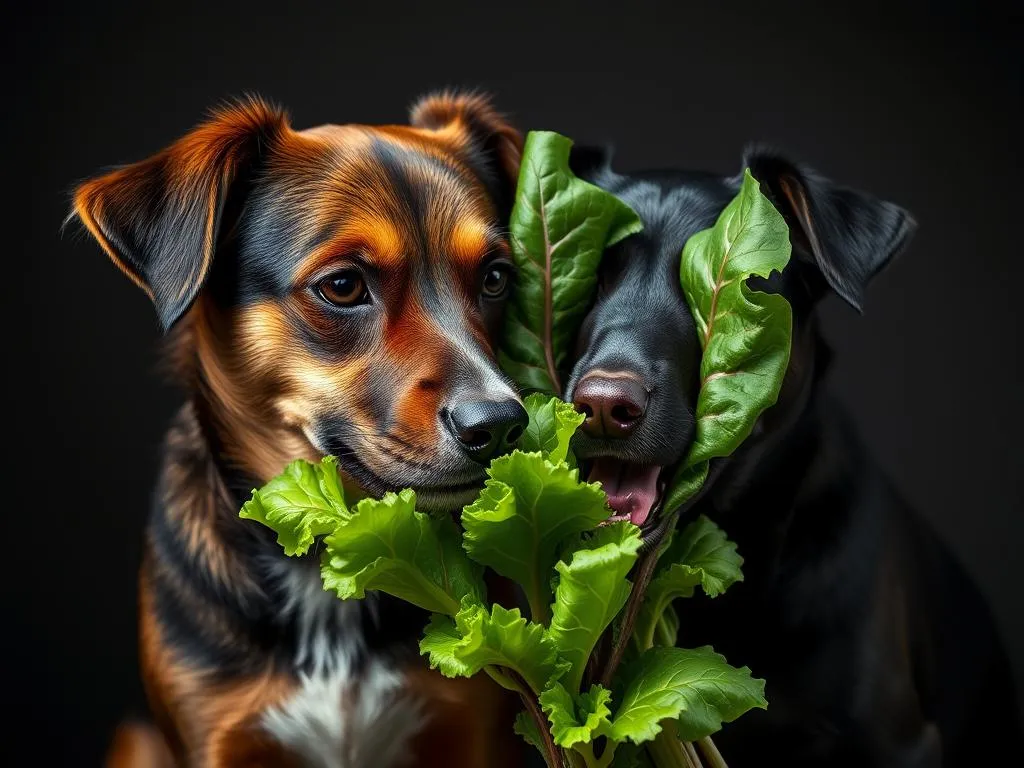
Dog nutrition is a critical aspect of pet ownership that often gets overlooked. Providing a balanced diet is essential for maintaining your furry friend’s health, energy levels, and overall well-being. One topic that has surfaced in discussions about dog diets is the potential of feeding dogs leafy greens, specifically Swiss chard. This vibrant vegetable is known for its impressive nutritional profile and health benefits for humans, but can it be safely incorporated into your dog’s diet? Let’s explore this in detail.
Understanding Dog Nutrition
Importance of a Balanced Diet
A balanced diet for dogs consists of various macronutrients and micronutrients, each playing a vital role in their health.
-
Macronutrients include proteins, fats, and carbohydrates. Proteins are essential for growth and tissue repair, fats provide energy and support cell function, while carbohydrates offer a quick energy source.
-
Micronutrients consist of vitamins and minerals that assist in various bodily functions, from bone health to immune support.
A well-rounded diet ensures that dogs receive all essential dietary components, promoting their health and longevity.
Common Human Foods for Dogs
Many dog owners are curious about including human foods in their pets’ diets. Some safe foods for dogs include:
- Carrots
- Blueberries
- Pumpkin
- Sweet potatoes
- Green beans
While feeding dogs human foods can be beneficial, it’s crucial to understand which foods are safe and how they fit into a dog’s overall nutritional needs.
What is Swiss Chard?
Nutritional Profile of Swiss Chard
Swiss chard is a leafy green vegetable that belongs to the beet family. It’s packed with essential vitamins and minerals. Here’s a breakdown of its nutritional profile:
- Vitamins: Rich in vitamins A, C, and K.
- Minerals: Contains magnesium, potassium, and iron.
- Caloric Content: Low in calories, making it a healthy option for both humans and potentially dogs.
- Fiber: Provides dietary fiber, which can aid in digestion.
These nutritional components make Swiss chard a superfood for humans, but what about dogs?
Health Benefits of Swiss Chard for Humans
Swiss chard is celebrated for its numerous health benefits, including:
- Antioxidant properties that help combat oxidative stress.
- Anti-inflammatory effects that may reduce the risk of chronic diseases.
- Essential nutrients that support overall health, including heart and bone health.
These benefits make Swiss chard a popular choice among health-conscious individuals. However, the question remains: can dogs enjoy these benefits too?
Can Dogs Eat Swiss Chard?
Safety of Swiss Chard for Dogs
When considering whether dogs can eat Swiss chard, it’s essential to address the safety of this leafy green. Swiss chard contains oxalates, which can bind with calcium and lead to potential health issues, particularly in dogs predisposed to kidney stones. While many leafy greens also contain oxalates, the levels in Swiss chard can be concerning if consumed in large quantities.
Comparatively, other leafy greens such as spinach and kale also contain oxalates, but their effects on dogs can vary. It’s crucial to understand these differences when choosing what to feed your pet.
Potential Risks of Feeding Swiss Chard to Dogs
Feeding your dog Swiss chard can carry some risks, including:
- Gastrointestinal Upset: Some dogs may experience nausea, vomiting, or diarrhea after consuming Swiss chard due to its fiber content.
- Kidney Issues: Dogs with a history of kidney problems should avoid Swiss chard due to its oxalate content.
If oxalate poisoning occurs, symptoms may include lethargy, vomiting, and decreased appetite. Always monitor your dog after introducing any new food into their diet.
Recommended Serving Sizes and Preparation
If you decide to introduce Swiss chard into your dog’s diet, preparation and serving size are key:
- Cooking: Cooking Swiss chard can reduce its oxalate levels, making it safer for dogs. Steaming or boiling is recommended.
- Serving Size: Start with small amounts, such as a teaspoon for small dogs and a tablespoon for larger breeds. Monitor their reaction before increasing the quantity.
Moderation is crucial. Swiss chard should not replace your dog’s primary diet but can be a supplementary treat.
Alternatives to Swiss Chard
Other Leafy Greens Safe for Dogs
If you’re hesitant about feeding your dog Swiss chard, there are plenty of other leafy greens that are dog-safe:
- Kale: High in vitamins A, C, and K; moderate oxalate levels.
- Spinach: Packed with iron and vitamins; also has oxalates but in smaller amounts.
- Collard Greens: Rich in calcium and vitamins A and K; a great alternative.
Each of these alternatives offers various nutritional benefits, making them excellent additions to your dog’s diet.
Incorporating Vegetables into Your Dog’s Diet
Introducing new vegetables into your dog’s diet should be done gradually. Here are some tips:
- Start Small: Introduce new veggies in small amounts and watch for any adverse reactions.
- Mix with Regular Food: Combine vegetables with your dog’s regular food to encourage acceptance.
- Variety is Key: Offering a variety of vegetables can provide different nutrients and keep mealtime interesting.
Conclusion
In conclusion, while Swiss chard contains beneficial nutrients, it also poses potential risks for dogs, particularly due to its oxalate content. It’s essential to prepare it correctly and serve it in moderation. Always consult your veterinarian before making significant changes to your dog’s diet to ensure that their unique nutritional needs are met.
Incorporating Swiss chard can be safe in small amounts, but there are plenty of alternative leafy greens that offer similar benefits without the risks. Always prioritize a balanced diet and listen to your dog’s needs.
FAQs
Can dogs eat cooked Swiss chard?
Yes, cooking Swiss chard can reduce its oxalate levels, making it safer for dogs. Steaming or boiling is recommended to preserve its nutrients while minimizing potential risks.
What should I do if my dog eats Swiss chard?
If your dog consumes Swiss chard unexpectedly, monitor them for any symptoms of gastrointestinal upset or signs of oxalate poisoning. If any concerning symptoms arise, contact your veterinarian immediately.
Are there any vegetables that are toxic to dogs?
Yes, some vegetables are toxic to dogs, including onions, garlic, leeks, and chives. These can cause serious health issues, so it’s essential to avoid them altogether.
How can I tell if my dog has eaten too much Swiss chard?
Symptoms of excessive Swiss chard consumption may include vomiting, diarrhea, and lethargy. If you notice any of these symptoms after your dog has eaten Swiss chard, consult your veterinarian.
References
(Additional references and studies would typically be listed here, but per the guidelines, they are not included in this blog post.)









